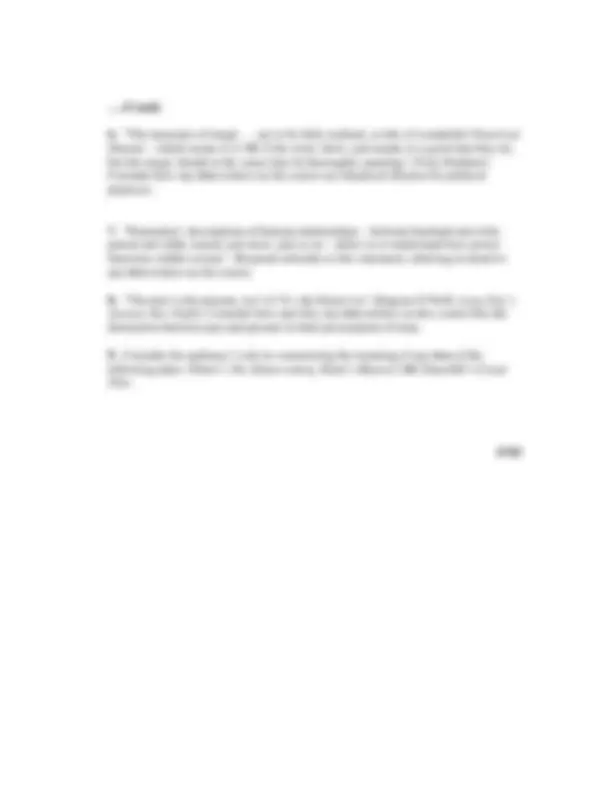



Study with the several resources on Docsity

Earn points by helping other students or get them with a premium plan


Prepare for your exams
Study with the several resources on Docsity

Earn points to download
Earn points by helping other students or get them with a premium plan
Community
Ask the community for help and clear up your study doubts
Discover the best universities in your country according to Docsity users
Free resources
Download our free guides on studying techniques, anxiety management strategies, and thesis advice from Docsity tutors
The examination papers for the drama and theatre studies course, en385, at the national university of ireland, galway, during the academic year 2007/2008. The papers consist of questions related to modern drama and theory, and students were required to answer any two of the provided questions. The questions cover various topics, including the optimism of modernism, performance of masculinity, the indispensability of stage action, the influence of stanislavski and brecht on beckett, and the use of theatrical illusion for political purposes, among others.
Typology: Exams
1 / 2

This page cannot be seen from the preview
Don't miss anything!


Contd./…
…./Contd.